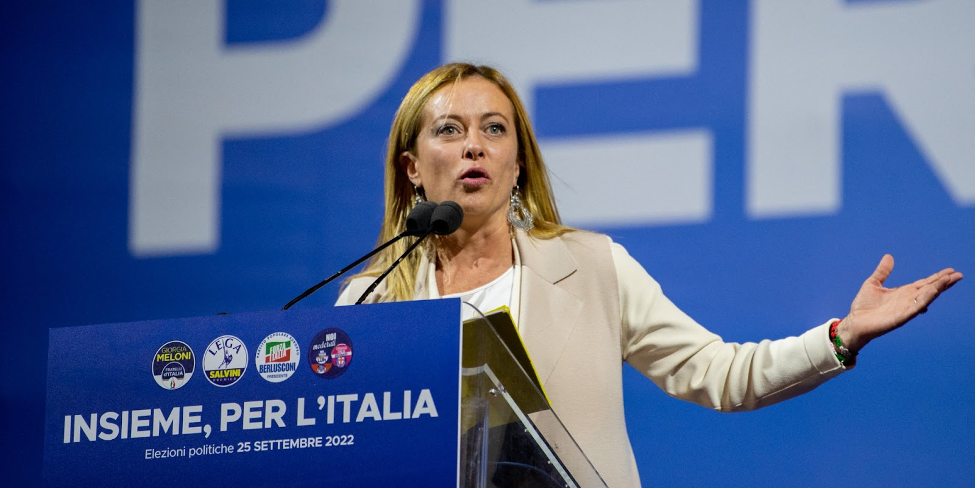
On September 25, 2022, Italy selected Giorgia Meloni as their new Prime Minister. Meloni leads the nationalist, far-right party, Brothers of Italy, founded in 2012. Despite her attempts to present the party as a mainstream conservative group, the party can be traced back to fascist leader Benito Mussolini. She has voiced her opposition to the European Union and has explicitly denounced the “LGBT lobby” and “Islamist violence” in a speech to Spain’s far-right Vox party.
While Meloni was dominating polls leading up to the election, her victory still stands in stark contrast to her previous run in 2018 where her party had only won 4 percent of the vote. This time, she walked away victorious with 26 percent of the vote. This is largely on account of poor voter turnout, with only one in four Italians showing up to vote on the day of the election. Meloni will be Italy’s most conservative leader since 1945, and if her party mimics others of its nature in the West, climate change prevention will not be of high concern.
The previous administration, led by previous Prime Minister Mario Draghi, was seeking to use some of Italy’s remnant COVID-19 relief funds to boost science in Italy – in fact, the investment plan had allocated 11 billion euros to scientific research. Scientific research can aid in climate change mitigation by discovering efficient energy sources, new ways to cut emissions and ways to reduce waste. Its funding is key in making scientific progress.
During Meloni’s campaign, she announced her intentions to alter Draghi’s plan, and some researchers are worrying that this budget will be shifted elsewhere. According to economist Alberto Baccini, Italy’s science funding has tended to be erratic and non-continuous, making climate change research and prevention progress difficult. If Meloni cuts the plan set forth by Draghi’s administration, progress will be stunted once again. The Intergovernmental Panel for Climate Change (IPCC) has repeatedly designated climate change as a global issue, and thus, it is imperative that countries fund research and development to combat its progression.
It is unclear where Meloni’s administration will go with climate change prevention methods and research. Her campaign promised nuclear energy and lower costs but failed to provide concrete details in their plan. Additionally, while most European countries already have 2030 emission reduction targets in place, Meloni has yet to formally address the issue.
This noncontinuous effort to remediate climate change represents disproportionate care from the nation on issues concerning the climate. Italy is responsible for 11.4% of the EU’s total greenhouse gas emissions – and 81% of Italians are in favor of stricter government measures concerning climate action. However, only 45% of Italians believe that Italy will succeed in curbing carbon emissions substantially by 2045. This is much lower than other European nations – such as Denmark, Norway and Sweden – who are currently leading European climate change mitigation, according to the Climate Change Performance Index (CCPI).
Meloni’s administration is set to tackle a slowing economy, a budget drafting, and dissatisfied European allies. However, in order to make maximal administrative progress for Italy and the greater European Union, Meloni should include climate change research and prevention at the forefront of her agenda.



